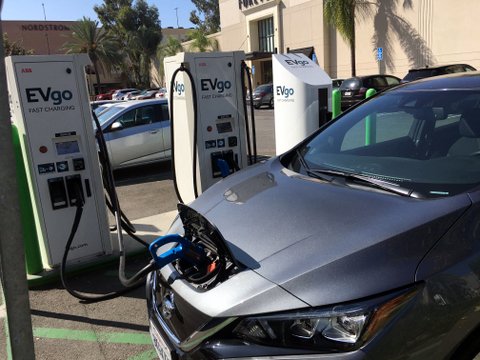Preparing for Real World Encounter with a New Electric Vehicle
This article may contain affiliate links.
The electric vehicle (EV) revolution is upon us, and many people are beginning to agree. They’re eco-friendly, economical, and just plain fun to drive. However, they do come with their own set of limitations that you should be aware of before making the purchase. In this post, we will go over some of the things you should keep in mind before purchasing an electric vehicle.
1. The initial purchase price is higher for EVs
When considering purchasing an electric vehicle, it is important to remember that the initial purchase price will be higher than that of a comparable traditional gasoline-powered car. However, this initial investment is often offset by the lower cost of ownership over the vehicle’s lifetime.

For example, EVs have far lower maintenance costs as they have no oil or filter changes, and their brake pads last longer since regenerative braking slows the car without using the brakes. In addition, charging an EV costs significantly less than filling up a gas tank, making EVs a more affordable option in the long run.
With advances in technology and increasing consumer demand, the initial cost of EVs will likely continue to decrease, making them an increasingly attractive option for car buyers. Every day, environmentally friendly cars are becoming more worth the price. However, in the meantime, the cost is relatively high.
2. Recharging your car takes longer than fueling a gas car
One of the main drawbacks of EVs is that they take longer to charge than it takes to fuel up a gasoline-powered car. The time it takes to charge an EV depends on the size of the battery, the type of charger being used and the power source itself.
A Level One charger (a typical 120-volt household circuit), which is the slowest type of charger, can take anywhere from eight to 20 hours to fully charge a car. A Level Two charger, which is faster, can take between four and six hours. The fastest chargers, DC Fast Chargers, can charge a car in less than an hour.
If you own a Tesla, you can take advantage of the company’s Superchargers, which can charge your car in just 15 minutes. However, for the majority of EV owners, charging times are still a significant drawback on long trips.

3. Charging stations are not readily available
If you live in a major city, there is likely a gas station on every block. The same is not true for charging stations. This means that if you’re planning on taking a long road trip in your EV, you’ll need to do some research ahead of time to figure out where you can charge up.
Fortunately, there are apps like PlugShare that can help you find nearby charging stations. Until EVs become more popular and charging stations become more ubiquitous, this is likely to remain a drawback.
4. If you don’t live somewhere with a charger, you’re out of luck
If you live in an apartment or condo, or if your home doesn’t have a garage, you might not have easy access to a charger. This means that if you don’t have somewhere to charge your car, an EV might not be the right choice for you. One option could be to use a service like WhereIPark to find nearby monthly parking lot subscriptions and choose one with a vehicle charging station inside.
Endnote
Electric vehicles are undoubtedly the future, and while they come with a few limitations, they offer many benefits that make them worth considering for your next car purchase. With a little research and planning, you can find an EV that’s right for you and your lifestyle.

2 thoughts on “What You Need to Know Before Purchasing an EV”